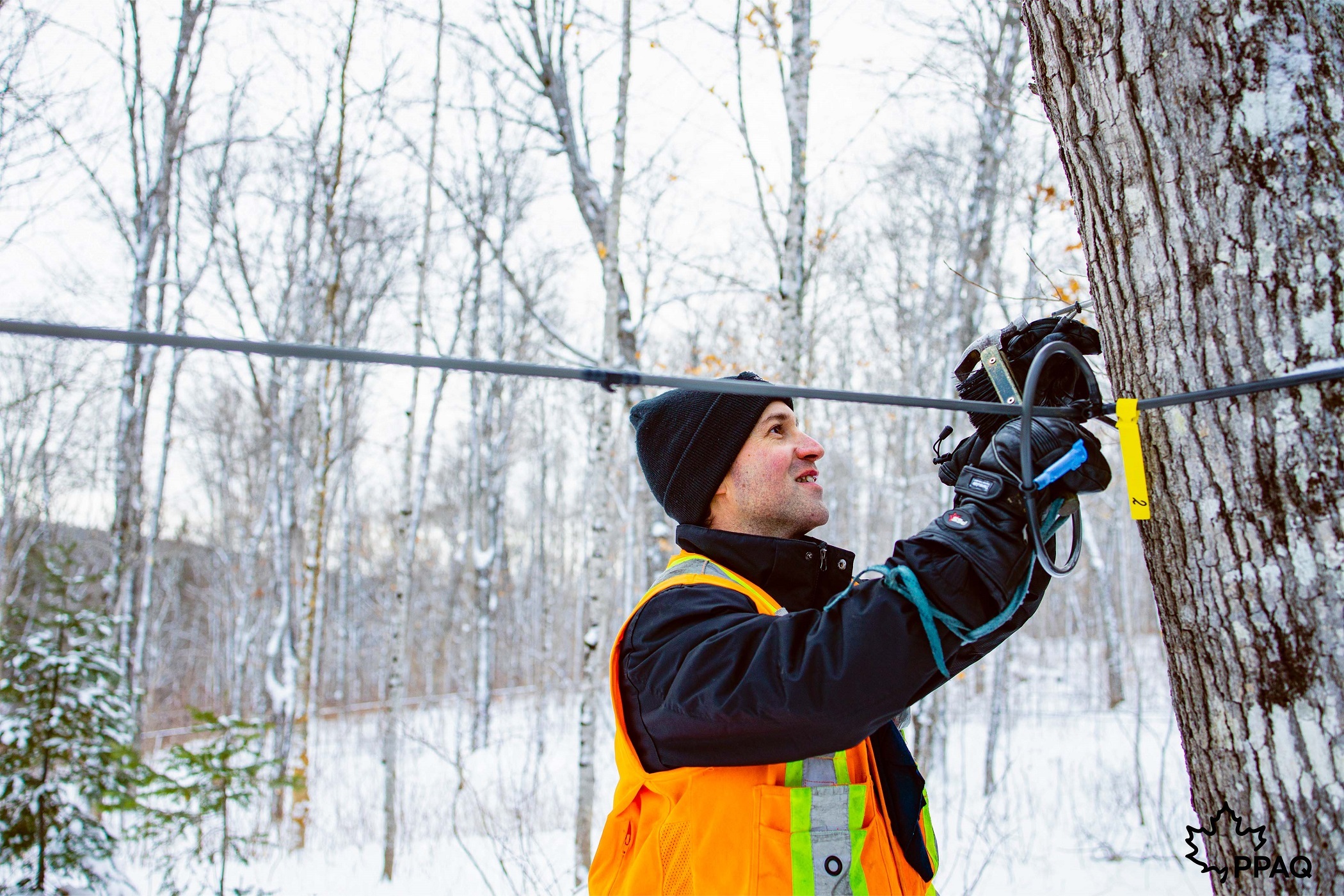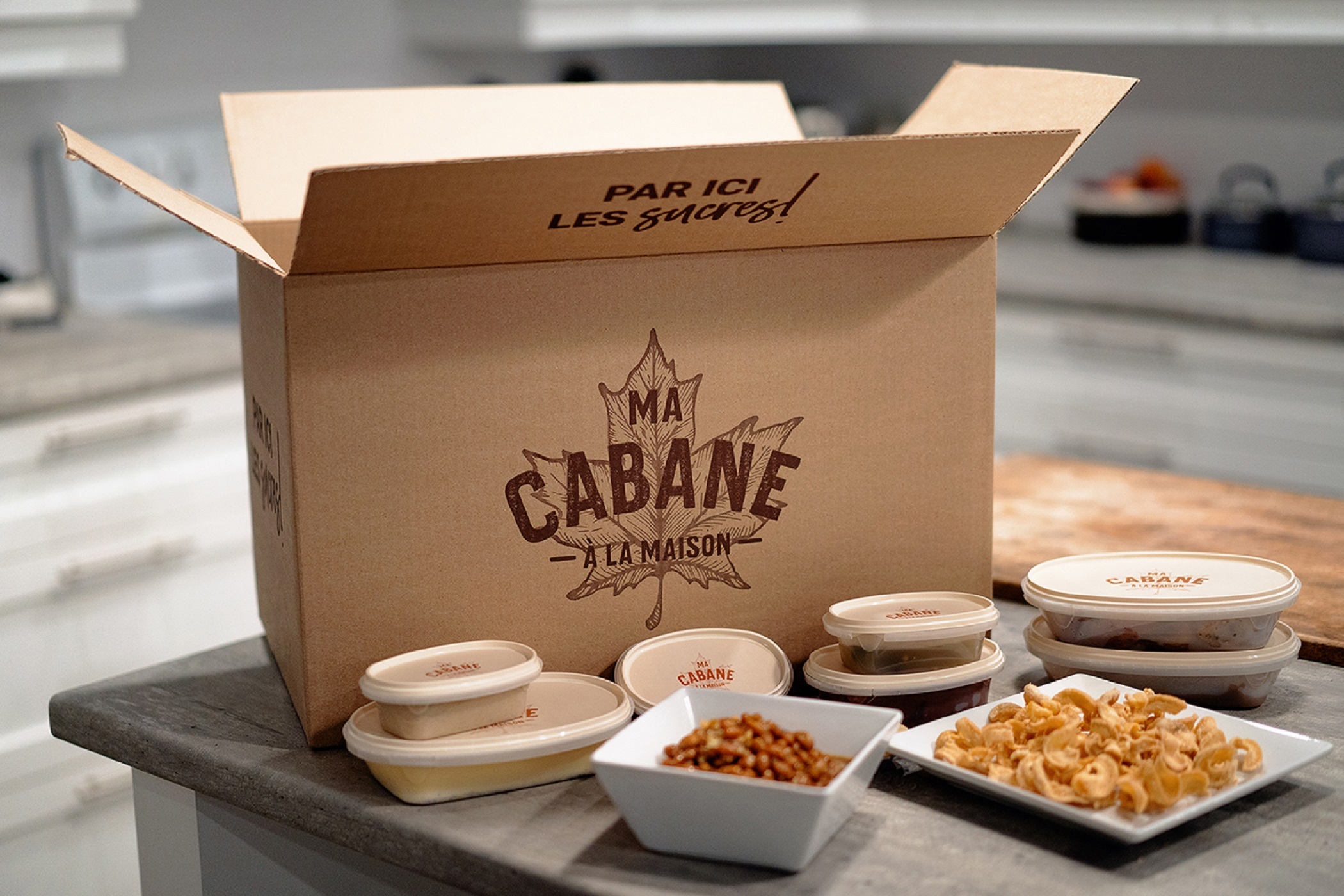In many ways, the maple syrup business has never been better in Quebec.
The province, which accounts for about 72% of the world’s maple syrup production, is planning to tap into more even trees to help meet the world's growing demand for the sweet liquid. Sales have been so robust that Quebec added 2,000 producers to reach 13,330 over the past two years.
But that good fortune has not spread to one key corner of the industry: the family-owned sugar shack.
Some maple syrup producers open retail businesses called sugar shacks to the public every spring during maple syrup season, providing a space that is both part of Quebec's cultural heritage and a draw for tourists and diners. Sugar shacks are only open a couple of weeks a year during syrup season in early spring when the sap used to make maple products is collected.
But the business is tough and the number of sugar shacks are declining: There are only about 140 sugar shacks in Quebec, down from 200 a few years ago and representing only a third of the province's 425 sugar shacks open in 2010. If sugar shacks continue to disappear, it would mark the loss of a centuries-old tradition and a key part of Quebec's history.

Not only have sugar shacks had to deal with the pandemic and lack of tourism, the businesses are dealing with a narrow window to make money, difficulties finding people to take over family businesses as owners approach retirement and the province's job shortage.
“It’s felt as if a bomb had gone off in the sugar shack industry in recent years,” Stéphanie Laurin, co-owner of the Chalet des Érables sugar shack and president of the Association of Quebec Sugar Shacks, told CoStar News in an interview. “It’s an industry that has to rely on a six- to eight-week period every year, and there’s very little wiggle room and many factors that can interfere with profitability. It’s a very risky business.”
This is forcing sugar shack owners to think outside the box. Like thousands of other retail businesses across the globe during the pandemic, some sugar shacks decided to diversify what they offer and how they offer it.
Laurin and Sylvain Arsenault, president of the marketing communications firm Prospek, launched so-called Home Sweet Home Kits last year as a way for Quebecers to support their local sugar shacks by buying meal boxes prepared by participating sugar shacks.
The meal kits, which typically contain traditional Quebec sugar shack meals such as homemade pickles, meat pies and maple desserts, are returning this year after being deemed "hugely successful" last year, with 70 sugar shacks selling 110,000 meal boxes, bringing in $11.5 million in revenue.

The success of the meal boxes took everyone by surprise, Laurin said. “Since sugar shacks are rooted in tourism, we’re very far from big city centres,” she said. “We could have all done individual meal boxes, but the problem is people wouldn’t necessarily have driven an hour to pick up a boxed meal.”
The problem was solved when Metro, one of Canada’s largest grocery store chains, agreed to allow sugar shacks to use its 196 grocery stores as pickup points for the meal boxes.
“It was miraculous for the sugar shack industry,” Laurin said.
But some sugar shacks have decided not to open their doors to the public this year because of the worker shortage and unpredictability of the provincial government’s COVID-19 restrictions. While the Quebec government is now lifting most of its restrictions, including allowing restaurants to seat guests indoors, it might be too late in the season for some sugar shacks to try and turn a profit.
“Many sugar shacks told themselves they’d skip their turn this year,” Laurin said, adding that many sugar shacks have been left without employees after being closed for three years. “This will be the third season we launch during the pandemic, and three consecutive years in a climate of uncertainty has indeed resulted in a diminution of sugar shacks."
Maple Reserves
Even though Quebec sold nearly 180 million pounds of maple syrup last year, the province only produced 133 million pounds. The higher sales were made possible because the Quebec Maple Syrup Producers organization tapped into the maple syrup strategic reserves housed in a giant warehouse in Laurierville, Quebec. The organization established the reserve as a backup for years when poor weather impedes maple syrup production.
Inventory levels in the reserve are calculated annually. When stocks decline, the Quebec Maple Syrup Producers can replenish them by issuing additional quotas to maple producers. When inventories grow too large, customers are given incentives to stimulate sales.

The Quebec Maple Syrup Producers is planning upgrades to the warehouse, which is about 267,000 square feet, and the construction of another warehouse is expected to begin this spring. The reserves contained 100 million pounds of maple syrup stored in 45-gallon barrels at the start of the 2021 season.
And that's some valuable inventory. Depending on the type of syrup and intensity, maple syrup prices have different ranges. But the average price per gallon in 2020 in Quebec was about $39 Canadian dollars, or nearly $31 U.S. dollars, meaning a 45-gallon barrel would cost about CA$1,755 Canadian dollars, or about US$1,381.

Double Duty
Sugar shacks double as restaurants and production facilities, making their own maple syrup while also inviting guests to learn about the maple syrup industry, contributing to agritourism.
“Every spring, we work hard to help people discover the tradition surrounding [types of] maple and disseminate this know-how from generation to generation,” Laurin said.
That know-how began centuries ago with Indigenous populations who were using maple sap long before the arrival of European settlers. Settlers began boiling the maple sap in cabins, and eventually these cabins became places of gathering for nearby families and the sugar shack concept was born.
These gatherings centered around many of the foods still consumed in sugar shacks such as maple-based foods, including sugar pie and maple taffy, and other traditional Quebec foods such as ham and other pork products, as well as easily preserved pickled vegetables.

The economic impact of the sugar shack industry on Quebec tourism is difficult to gauge since sugar shacks can range from small, localized operations to huge commercial establishments with 80,000 customers in their dining rooms in a typical spring season, Laurin said.
Sugar shacks attract all kinds of tourists, from local day-trippers to international travelers.
“Hotels clearly benefit from leisure travelers who come visit sugar shacks,” Dany Thibault, president of the board of directors of Association Hôtellerie Québec, Quebec’s hotel association, told CoStar News.
The Quebec lodging industry was hit hard by the pandemic and related provincial regulations. In 2019, the industry reported a 60% average occupancy rate and an average daily room rate of CA$144, according to the Association Hôtellerie Québec. In 2020, the occupancy rate dropped to 32% and the average rate fell to CA$119.
“Some sugar shacks are extremely focused on international tourists,” said Laurin. “Rigaud’s Sucrerie de la Montagne, for example, is open for international tourists 12 months per year, and a large part of its clientele is organized tours for people all over the world.”
Rigaud is situated in the Montérégie region of the province, where the occupancy rate went from 54.9% in 2019 to 27.7% in 2020, and hit 37.4% in 2021.
But most sugar shacks are only open for a few weeks every spring during maple syrup season and attract guests from Canada and bordering states in the U.S., Laurin said.
“People will say, ‘This year we’ll try a sugar shack from Quebec’s Montérégie region’ or ‘This year we’ll try a sugar shack in Mauricie,'” she explained.
Laurin launched the Association of Quebec Sugar Shacks in March 2021 to provide support and information regarding pandemic restrictions for maple syrup producers and sugar shack owners and to help keep the tradition alive.
"We always ask for the solidarity of Quebecers for our industry, which has been through a lot for three seasons in a row now," Laurin said.
